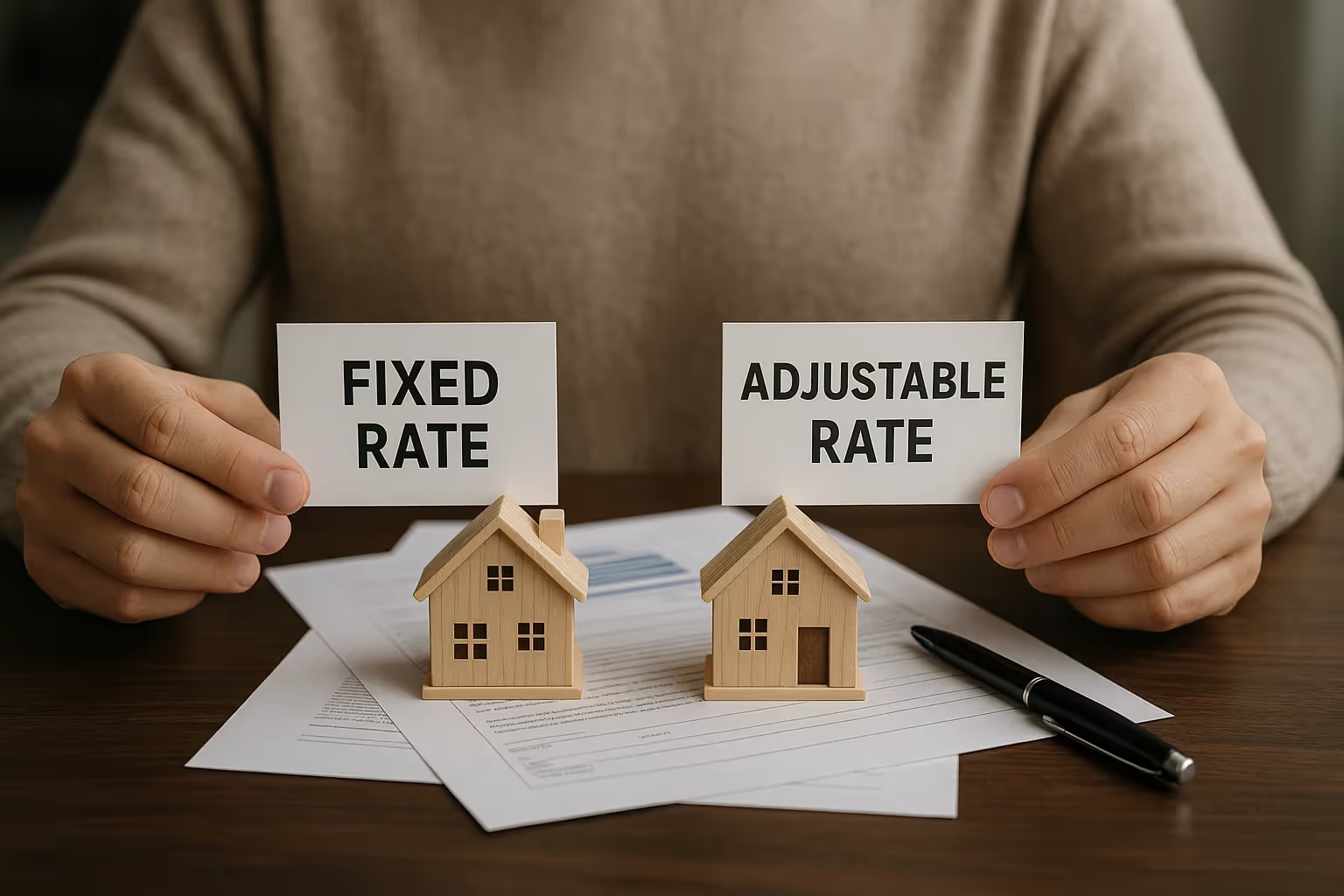.avif)
When it comes to managing your finances, your home loan is one of the biggest factors that can impact your monthly budget. Over time, as interest rates and your personal financial situation change, it may be worth considering whether you should refinance your mortgage. A Refinance loan can help you save money, simplify your payments, and even unlock equity from your home.
In this article, we’ll explore the top benefits of choosing to refinance, explain how it can improve your financial stability, and guide you in making the best decision for your needs.
What Does It Mean to Refinance?
To refinance a mortgage means to replace your current home loan with a new one-ideally, one that offers better terms. This new Refinance loan is used to pay off your existing loan, after which you begin making payments on the new one.
Homeowners choose to refinance for several reasons: to get a lower interest rate, reduce their monthly payments, shorten the loan term, or switch from an adjustable-rate to a fixed-rate mortgage. Others use a Refinance loan to take out cash for major expenses like home renovations, education, or debt consolidation.
1. Lower Your Interest Rate

One of the most common and important reasons to refinance is to secure a lower interest rate. Interest rates fluctuate over time, and even a small decrease can have a significant impact on the total cost of your loan.
For example, if you took out a mortgage five years ago at 7% and now rates are around 5%, a Refinance loan could help you save thousands of dollars in interest over the life of the loan. Lowering your interest rate can reduce both your monthly payment and the total interest you pay-helping you achieve financial freedom faster.
2. Reduce Monthly Payments
If you’re finding your current payments hard to manage, a refinance can make your loan more affordable. By extending the loan term-say, from 20 years to 30 years-you can lower your monthly payments and free up cash for other expenses.
While extending your loan may increase the total interest paid, it can greatly improve your monthly cash flow. A Refinance loan allows you to tailor your payments to your lifestyle and budget, especially during times of financial uncertainty.
3. Shorten the Loan Term
A Refinance loan isn’t only for people who want smaller payments. Some homeowners use it to shorten their loan term-for example, from 30 years to 15 years. While this usually means higher monthly payments, it can save you tens of thousands of dollars in interest over the long run.
Shorter loan terms are a great choice if you’re earning more than before or want to become debt-free sooner. When you refinance into a shorter-term loan, you gain the satisfaction of owning your home outright much faster.
4. Switch Between Fixed and Adjustable Rates

Many homeowners start with an adjustable-rate mortgage ARM, which offers lower initial rates but can increase over time. As rates rise, payments can become unpredictable. Refinancing into a fixed-rate mortgage through a Refinance loan can give you stable payments and peace of mind for the rest of your loan’s duration.
Alternatively, if rates are expected to stay low for a while, some homeowners switch from fixed to adjustable to take advantage of lower short-term rates. Either way, refinance flexibility allows you to adapt to changing market conditions.
5. Consolidate Debts
Another valuable use of a Refinance loan is to consolidate high-interest debts-like credit cards or personal loans-into one manageable monthly payment. Since mortgage rates are typically lower than credit card rates, refinancing can reduce your total interest burden and simplify your finances.
By consolidating your debts, you can move from juggling multiple payments to managing just one loan, saving money and reducing financial stress.
6. Access Home Equity with a Cash-Out Refinance
If you’ve built equity in your home the difference between its market value and what you owe, you can use a cash-out Refinance loan to access that value. This means taking a new loan that’s larger than your current mortgage and receiving the difference in cash.
Homeowners often use cash-out refinance funds for:
- Home improvements
- Paying off high-interest debt
- Education expenses
- Investing in another property or business
However, use this option wisely. A cash-out refinance increases your loan balance, so it’s important to ensure the new payments fit comfortably into your budget.
7. Remove Private Mortgage Insurance PMI
If you initially purchased your home with less than a 20% down payment, you may be paying for Private Mortgage Insurance PMI. Once your home’s value has appreciated or you’ve paid down enough of your balance, refinancing can help eliminate PMI and reduce your monthly payment.
A Refinance loan without PMI can free up a significant amount of money each month, which can instead go toward savings or home improvements.
8. Improve Loan Terms or Lender Services
Sometimes, the motivation to refinance comes from wanting better service or loan features. A Refinance loan may come with benefits like:
- More flexible payment options
- No prepayment penalties
- Easier access to customer support
- Modern online account tools
Switching lenders through refinancing can also provide a better overall borrowing experience, especially if your current lender’s service is lacking.
9. Build Long-Term Financial Stability
By using a Refinance loan strategically, you can strengthen your financial position for the future. Lower payments can increase your monthly savings, while shorter loan terms can help you build equity faster.
A well-timed refinance can also protect you from market changes by locking in favorable interest rates for years to come. It’s not just about immediate savings-it’s about setting up a secure financial future.
10. Take Advantage of Market Opportunities
The economy changes constantly. Interest rates, property values, and lender competition all shift. Smart homeowners watch for the right moment to refinance-for example, when rates drop or when their property value rises.
Timing your Refinance loan correctly can help you save thousands in interest and maximize the return on your investment.
Conclusion
Choosing to refinance your home loan is a major financial decision, but when done wisely, it can bring long-term benefits. Whether you’re looking to lower payments, shorten your loan term, or access home equity, a Refinance loan offers flexibility and opportunity.
Before taking the step, review your current financial goals, compare offers from multiple lenders, and calculate your potential savings. With careful planning, refinancing can be one of the smartest financial moves you make toward securing a more stable and prosperous future.

Alex Chen

Alex Chen













Get in touch with a loan officer
Our dedicated loan officers are here to guide you through every step of the home buying process, ensuring you find the perfect mortgage solution tailored to your needs.
Options
Exercising Options
Selling
Quarterly estimates
Loans
New home

Stay always updated on insightful articles and guides.
Every Monday, you'll get an article or a guide that will help you be more present, focused and productive in your work and personal life.









.png)
.png)
.png)
.avif)
.avif)
.avif)
.png)
.png)
.png)
.avif)
.png)
.png)
.avif)
.png)
.avif)
.png)
.avif)
.avif)